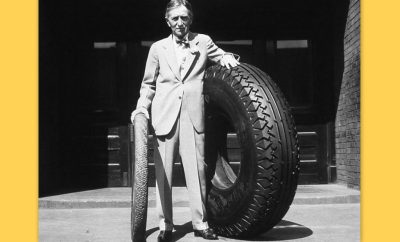
The strange advantage of being overly emotional
I’ve written articles with titles like “F*ck Your Feelings” and “Stop Trying to Be Happy“—so maybe it shouldn’t surprise me when people (wrongly) think I want everyone to be an emotionless robot or something.
If you read more than the headlines of those articles (and really, is that too much to ask?), you’ll find that’s not what I’m saying at all.
Emotions are important—they’re just not important for the reasons most people think they are.
In fact, I actually think that people who are overly emotional have a leg up on a lot of people who think they’re “in control” of their emotions by suppressing and feeling nothing.
This happens to a lot of people who grow up in environments where showing certain emotions—or any emotion—is discouraged or even punished. They learn to bury whatever emotion they’re feeling as soon as it starts to bubble up to the surface. Sometimes they can even cut themselves off from the emotion entirely.
They get so “good” at this, in fact, that eventually they can’t even tell you what they’re actually feeling, or if they’re even feeling anything at all.
They don’t know when they’re sad. They don’t know when they’re angry. They don’t even know when they’re happy.
Sometimes people email me and say they can’t get out of bed in the morning. They don’t find joy in the things that used to bring them joy. They don’t see much of a point to anything.
And they just don’t get why they feel this way.
This is almost always some form of suppressed depression.
While we’ve made a lot of progress as a society in accepting and treating real mental illness, there’s still a lot of stigma attached to it. We’re still not being taught how to recognize things like depression or anxiety very well, let alone what to do if we’re experiencing them.
Our emotional lives are like any other part of our lives that must be managed and maintained.
We have habits and routines—good and bad—for our health, finances, relationships, and so on.
We also have emotional habits.
And just like all these other habits, you have to put in some effort to maintain your emotional habits. It’s like emotional hygiene.
Sometimes you have to take inventory of your emotions. Sometimes you have to take out the emotional trash, clear out the junk, and then see what’s left.
And if you don’t have good emotional hygiene, it starts to bleed into the rest of your life—your relationships, your work, your health, etc.
So, what end of the spectrum are you on? Do you tend to overreact emotionally to a lot of things?
Or do you not react at all? Is your lack of reaction really just a form of emotional suppression?
Are there certain emotions you tend to feel more frequently and more intensely than others? Why do you suppose that is?
I know for me growing up, it wasn’t acceptable to get angry in my family. As a result, I learned to suppress my anger from an early age.
For a long time, this suppressed anger came out in some unhealthy ways. I acted out in school. I withdrew socially. I avoided conflicts when they should have been addressed.
I carried this into my adult life until I realized a lot of my relationships were being hurt by me not expressing myself in healthy ways.
As part of my emotional hygiene now, I’m more aware of when I’m suppressing my anger. I know I need to talk to someone about it, someone I trust and someone who will let me vent my anger in a healthy way.
So think about which emotions you could get a better handle on and which types of emotional hygiene would help you with that. If you need some ideas to help you get started, check out these articles:
- Understanding Your Emotions– How emotions work and how to manage them more effectively.
- Happiness Is Not Enough– Why experiencing a wider range of emotions—good and bad—is actually much healthier than trying to be happy all the time.
- F*ck Your Feelings– Life isn’t about feeling amazing all the time, it’s about understanding both the good and bad feelings.
All the best,
Mark
Πηγή: markmanson.net




